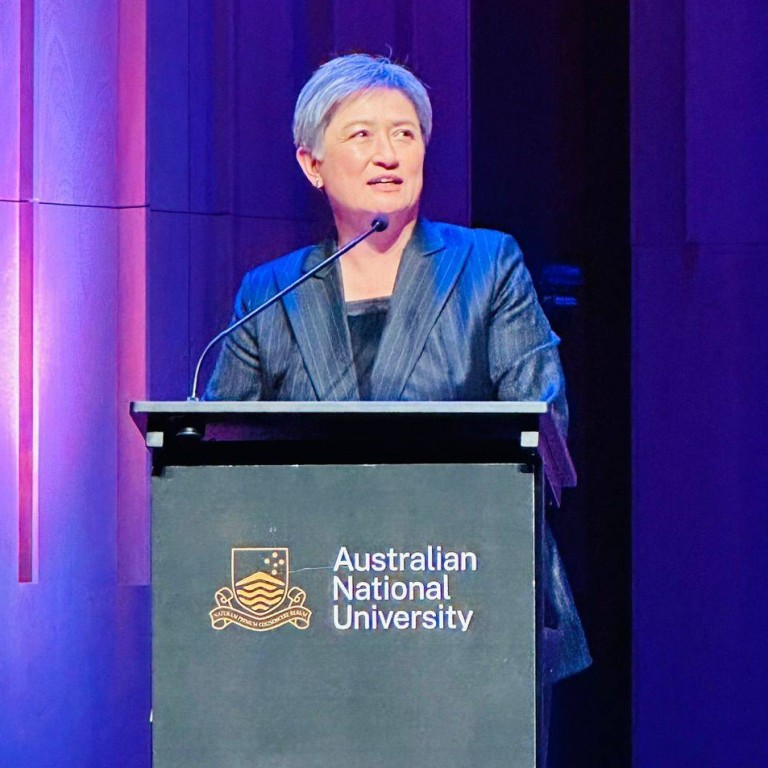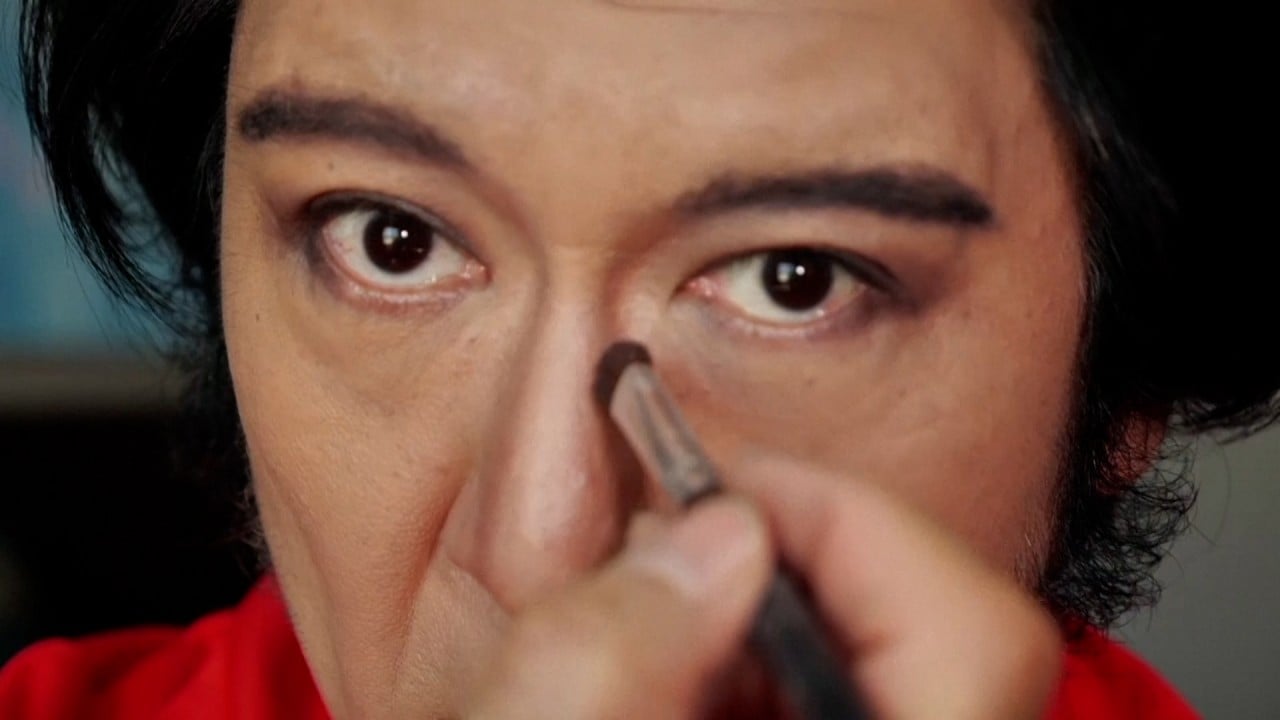
‘Fantastic as fiction’: Penny Wong on becoming Australia’s top diplomat as an immigrant
- In a candid speech, the Malaysian-born foreign minister highlighted the need for more diverse leadership and deeper ties with Asia
Wong, who is usually reticent to speak about personal experiences, gave a candid account about dealing with racism as a child when she delivered the inaugural lecture on Monday at the Centre for Asian-Australian Leadership in Canberra, which was set up in 2020 to tackle the so-called “bamboo ceiling” in Australia.
She said she could never imagine herself in the position she was in today during “those early years as an Asian kid in Adelaide, whose parents were married while the White Australia Policy was still in place”, referring to government policies that limited non-White immigration to the country until the 1960s.
“It is beyond doubt that having an Asian-Australian foreign minister sends a clear message to the region about modern Australia,” said Wong, who was born in Sabah in 1968. Wong’s mother is Australian-born while her father is originally from Malaysia.

“And it renders as nonsense narratives pushed by others, that have cast Australia as intolerant and unwelcoming – narratives that have sometimes resonated, and can harm our interests in a contested region.”
While not every foreign minister needed to be Asian-Australian, diversity in Australian leaders shapes how the world sees the country, she added.
It also helps build bridges with Australia’s regional neighbours in Asia, which were crucial to Australia’s political ambitions to engage with more than just traditional partners, she added.
During the speech, Wong announced changes to improve Asian language education through the New Colombo Plan, which supports undergraduate students with understanding of the Asia-Pacific through in-country studies, language training and internships.
To ensure the New Colombo Plan is effective at improving Australia’s Asian language skills, Wong said Canberra would be removing the cap on long-term scholarships, creating a new language-specific stream in the programme and increasing the duration of short-term mobility courses to four weeks from two.
Observers both in and out of Australia have long criticised the worrying decline in Australia’s mastery and knowledge of Asian languages.
“These changes won’t solve our Asia literacy challenge on their own – they are just one piece of the puzzle, one step in the process, and one signal to the education sector,” she said.
Wong said Australia would also be increasing training teachers in Asian languages and collaborating with universities to make Asian languages more attractive to students.
The foreign minister said her current position reflects a promise she made to herself to create change, believing that seeking election was the only way to combat discrimination. However, she said the journey to become one of the few Asian-Australians in parliament was a daunting one.
“There were times when it felt like the only other Asian faces I would see in Parliament House were the cleaners and a woman who worked in the library,” she said.
“And when you encountered others who were different, you would share a knowing, unspoken acknowledgement.”
She also admitted there was pressure “not to make mistakes”.
“Yet the upshot of trying not to make mistakes was that I was often criticised as robotic, wooden, cold,” she said.
Those who attended the lecture spoke about the importance of Wong’s speech to the Asian-Australian community.
Thomas Feng, a Chinese-Australian human rights and anti-racism advocate, said it was “validating” to hear Wong speak about the additional pressures as a woman of colour, the “daily reality” for many similar Australians.

“We should work towards a future where it is normal and unremarkable for non-White people to lead our country, businesses, and communities,” he said.
It was also particularly significant that Australia’s most influential Asian-Australian “unplugged” about her own traumas of racism, said Erin Wen Ai Chew, co-founder of the Asian Australian Alliance advocacy group.
Chew, whose family also hails from Malaysia, said the current political climate in Australia where migrants including international students and Gaza refugees have been cast as threats to Australian society could be a major hurdle to diversifying Australian leadership.
Indeed, Wong herself called out the recent messaging Peter Dutton, leader of the opposition and conservative coalition party, for his latest attempts to paint refugees from Gaza as risks to Australia’s national security.
Last week Dutton called for a ban on providing visas to Palestinian people fleeing Gaza to prevent a possible acceptance of Hamas sympathisers. He said these arrivals could put national security at risk. He did not oppose issuing visas to those fleeing the war in Ukraine and had previously supported a special refugee intake for white South African farmers.
This kind of messaging came from not just Dutton but his predecessor, former Australian prime minister John Howard, when he called for a reduction in Asian immigration, Wong said.
“This fearmongering is damaging in our community, and it is a lost opportunity for Australia – to be more unified, to avoid reproducing other conflicts here,” she said.


